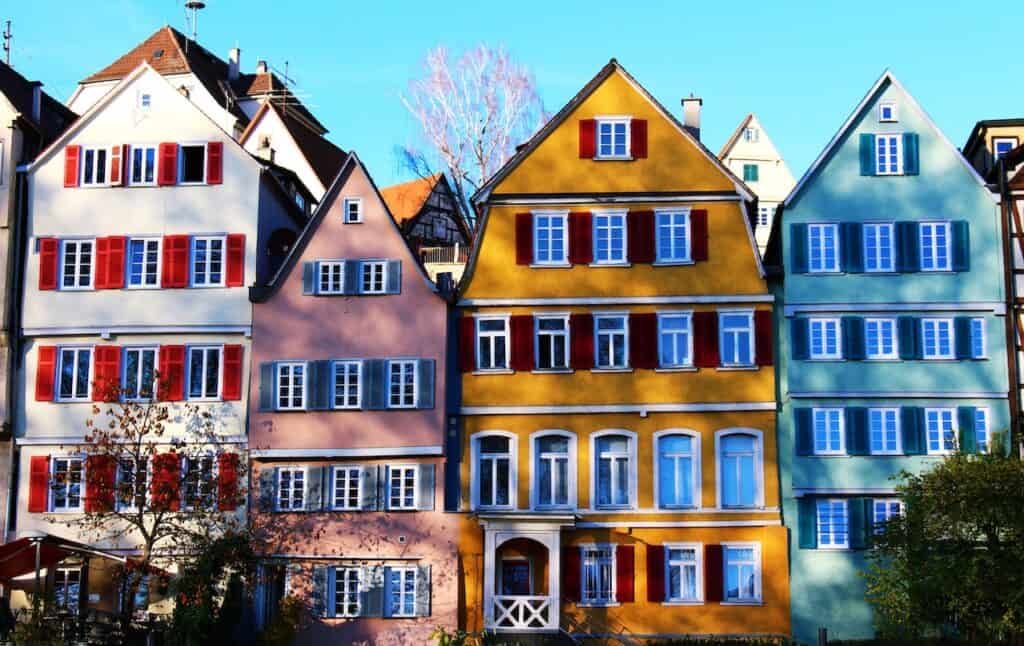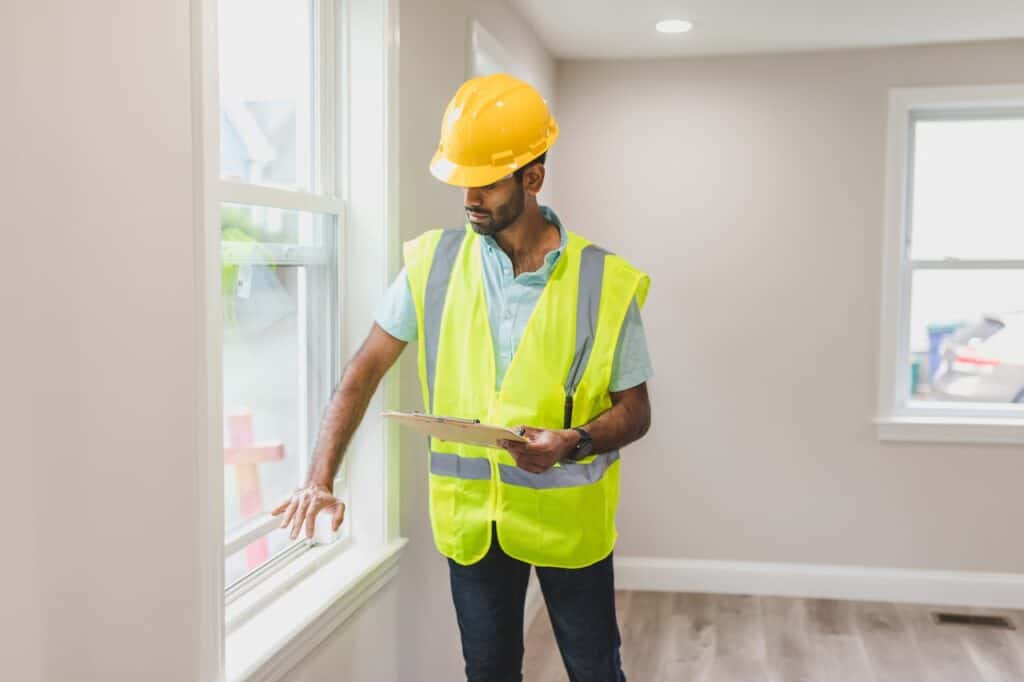
By now, you’re probably convinced that short-term rental investing is an excellent way not just to earn some passive income, but also to boost your investment portfolio. But if you’re not so sure where to start and how to buy your first Airbnb property, read on. We’ll break down the lengthy process for you in just 7 key steps.
If you’re brand-new to Airbnb investing, you’re probably excited, nervous, and overwhelmed by the number of things you need to do to get started. But there’s no need to fret. In this post, we’ll guide you through the seemingly complicated process of starting a short-term rental business. And by the time you finish reading, you’ll see how simple and doable it is after all.
First, you need to know how much you can buy with the money you have. And that includes any cash on hand and any amount you can borrow.
You can use that available capital to pay for your down payment, closing costs, and other expenses related to getting your first Airbnb, such as permits, furniture, etc. This can be in the form of cash in the bank, easy-to-sell stocks, a line of credit, or even a loan against your 401k. But any kind of liquid money will also work.
If you decide to take out a loan, there are a number of options you can use. One of the most common is through a bank or credit union. These usually require a down payment, and if your loan is approved, you can repay the balance in monthly installments in the next 15 or 20 years. Banks tend to ask for a larger down payment, though – anywhere from 15% to 25%. Their rates are higher because they consider short-term rental properties higher-risk investments.
Your loan approval amount will depend on different factors: your credit score, how much money you make, and how much you spend on debt payments. Usually, they’d prefer it if you:
Alternatives you can use are a conforming loan, a short-term or bridge loan, or if you already own a house, a home equity line of credit (HELOC). A HELOC uses the equity you have in your existing home as collateral – normally up to 85%.
Or, you could just opt for a private money loan from a friend, a relative, or a business partner, and you can decide to do a joint venture together.
Next, find the market that fits your budget and profit goals. But you need to first find out the local laws and regulations in your desired area. Each county, city, and neighborhood have their own requirements for operating short-term rentals. Some are very strict, requiring landlords to rent only their primary residence, or limiting the number of days they can lease it out.
Once you’ve confirmed that short-term renting is legal in that target area, look at the factors that drive the market there. These can be local attractions, tourist arrivals, seasonality, housing supply and demand, proximity to shops, hospitals, the airport and other basic services, employment rate, and popular events that take place regularly. Even the climate and walkability are important factors.
Then, study the demographics of the people visiting the area. Who among them would you want to attract? Business travelers? Tourists? Traveling nurses? Families visiting someone in a military complex or a university? Remote workers? Wedding guests? Adventurers?
Travel destinations like Miami, Tampa, and Kissimmee, Florida are some of the best places to look when buying your first Airbnb property. But cities like Austin and Phoenix are excellent, too, because of their strong economic and population growth. A lot of tech companies have been relocating their headquarters or building satellite offices there.

Now comes the fun part. Start looking at houses that are in your desired area. Many first-time STR investors usually work with a vacation rental agent or buy right off sites like Realtor.com and MLS. But you can find your first Airbnb property in other ways.
There are lots of other sites like Zillow, Trulia, Redfin, and Forsalebyowner that list all types of properties in a given location. If your chosen market is within driving distance, you can just drive around and look for homes that look a little run down. Then, find and contact the owners to see if they might be interested in selling.
You could also work with wholesalers who are essentially real estate investors. Their sole job is to find good deals for other investors. To do this, you can go to Biggerpockets.com, type in your market, then type in “wholesalers.”
You’ll need two kinds of information to figure out how much money you’ll make from your short-term rental business. And those are your income and expenses.
To calculate your income, you can use tools like AirDNA, Awning, KeyData, Mashvisor, PriceLabs and Rabbu to help you find out how much cash flow you’re likely to make based on occupancy rates and the average daily rate in a particular area, etc.
Here is a free Airbnb Home Buying Investment Calculator you can use to help run the numbers.
When it comes to expenses, those will include both your initial and ongoing costs. The initial expense will be one-time upfront costs including a deposit or “show money”, a down payment, escrow fees, appraisal fees, legal fees, realtor commission, and closing costs.
You’ll also have to factor in the costs for furnishing, interior design and any remodeling you may need to do.
PRO Tip: Look for properties that just need a few “cosmetic” fixes. You’ll want to make sure that the most fundamental features like roofing, foundation, and siding are in good shape. But things like old paint, outdated interiors, and worn carpets are minor issues. They’re easy to fix or redo and won’t cost you a lot of money to do so. (More about this in a bit.)
For ongoing expenses, these would include your monthly mortgage, the interest on any loans you’re making, property taxes, insurance, HOA fees, and operational costs. Operational expenses normally cover utilities, maintenance and repairs, commissions going to Airbnb and other booking channels you might use, subscription fees to property management software, or property manager fees – if you decide to hire one.
When you have all of the above information, you can then put all of it into a mortgage calculator or an SRT-specific calculator. (Click here for a free resource that you can use to calculate your projected rental income.)
Just remember to compute for the whole year and not on a monthly basis since seasonality can affect your monthly expenses.
Now to find a property that has good profitability, you’ll have to be patient. It could take a while to find the right deal, but keep looking and you’ll eventually find the one that meets your goals and requirements.
For this step, it’s important that you work with a very skilled real estate agent – especially if you’re from out of town. They’ll know the local market, find your comparables, and they’ll be familiar with all the local and state regulations. They’ll use the best strategy to negotiate a winning deal. They’ll also help you arrive at the best possible contract terms and conditions, and walk you through all the legal requirements that you’ll need to comply with.
This is the time to physically go to the property and make sure it’s in the shape the seller told you. You can hire a home appraiser to help you with this. They’ll have the experienced eye of a professional and help you identify needed repairs or any red flags you’d need to address.
Even around the neighborhood, see what’s going on. Find out what new establishments are opening and if any foreclosures are taking place. Understand how the streets are zoned and consider the other properties down the street. If the home you’re eyeing is next to a run-down, abandoned property, that may detract from its value.
Get to know the neighbors and let them know your intentions about the property. You might find that you have noisy, unfriendly, or Airbnb-averse neighbors — that could be toxic for your business.
Do all your due diligence. Carefully check the plumbing, wiring, heating/cooling, gutters, and drains. Inspect the walls, floors, windows, doors and other fixtures. Keep an eye out for cracks, molds, bed bugs – all kinds of problems, big and small. Check as much as you can. Then, if you need to fix anything, find out how much it’ll cost to do so.
Look for contractors and get different bids. You can find them on Yelp, Handy, Thumbtack and Google. Read reviews from the clients they’ve served.
And if you have to make any renovations, anticipate that they’ll cost you 20% more and take 20% longer than you would expect. Add up all the necessary repairs and go back to the seller about them. Ask for a price reduction or credit to make up for them. “As is” is what they always say, but if they find that your request is valid, they just might give you a discount. There’s no harm in asking.
Inspections are like the second round of talks. Even if your initial offer has been accepted by the seller, you could gain a bit more leverage to ask for a lower price if you see potential pain points.

Once you and the seller agree on a deal, it’s time to close. Do this as soon as possible so you can get the property all spruced up and ready for renting. Pay the escrow fees, closing fees, lender fees, and all other fees you need to pay.
Then start fixing, furnishing and marketing your unit to get it ready for bookings.
Ready to learn how we built and operate a $2M/year short-term rental business, operate properties throughout the USA remotely, and acquired 70+ properties without owning any in just 2 years? Attend our free online master class to learn how you can do the same. Click here.